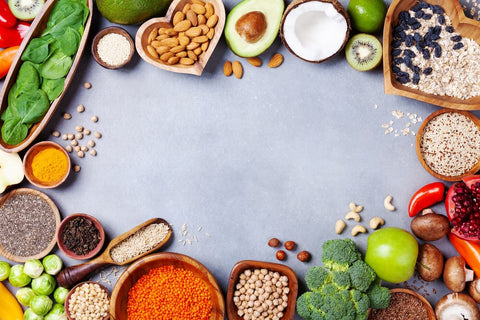Chia seeds, sourced from the Salvia hispanica plant of Central America, have been a dietary staple for millennia, revered by ancient civilizations for their sustainable energy and now celebrated as a modern superfood. These tiny seeds are loaded with nutrients such as omega-3 fatty acids, fiber, and antioxidants. However, their potent properties can also pose risks under certain conditions, making it important for some individuals to exercise caution or avoid them altogether.
Comprehensive Guide to Chia Seeds' Restrictions
Chia seeds are generally safe and beneficial but require caution in the following cases:
-
People with Allergies: Rarely, Chia seeds can trigger allergic reactions, which might include symptoms like itching, hives, or gastrointestinal distress. Anyone with a history of food allergies, particularly to seeds, should start with a small amount under medical supervision.
-
Individuals with Swallowing Difficulties: The gel-like consistency that Chia seeds acquire when wet can exacerbate swallowing problems for those with esophageal disorders or dysphagia. It’s crucial for these individuals to either avoid Chia seeds or only consume them in fully hydrated form, under the guidance of a healthcare provider.
-
Those with Hormonal Sensitivities: Chia seeds have been studied for their potential impact on hormone levels due to their high ALA (alpha-linolenic acid) content, a type of omega-3 fatty acid. People with hormone-sensitive conditions should consult healthcare professionals to understand the potential impacts on their health.
Medication Interactions and Chia Seeds
Beyond the specific health conditions, Chia seeds can interact with various medications:
- Blood Sugar Modulating Drugs: As Chia seeds stabilize blood sugar, they may amplify or interfere with diabetes medications. Monitoring and possible medication adjustment may be necessary.
- Blood Pressure Medications: Those on such medications should monitor their blood pressure regularly to prevent it from going too low.
- Blood Thinners: Due to their blood-thinning properties, Chia seeds should be used cautiously by anyone on anticoagulant drugs to avoid excessive bleeding.
Nutritional Profile and Safe Consumption Practices
The nutritional profile of Chia seeds offers substantial health benefits, making them a valuable addition to most diets:
- Rich in Nutrients: Each serving of Chia seeds provides a good dose of manganese, phosphorus, copper, selenium, iron, magnesium, and calcium.
- High in Dietary Fiber: The fiber content promotes digestive health and can aid in cholesterol management.
- Plant-based Protein: Chia seeds are a good protein source for vegetarians and vegans, contributing to muscle repair and growth.
The recommended daily intake for optimal health benefits without adverse effects is approximately two tablespoons. It’s best to gradually introduce Chia seeds into your diet and ensure adequate hydration to aid digestion and prevent gastrointestinal issues.
Conclusion: A Balanced View on Chia Seeds
Chia seeds are a powerful superfood that can enhance dietary nutrition significantly. However, understanding the full scope of their effects, particularly for those with certain health conditions or on specific medications, is crucial for safe consumption. Always consult with a healthcare professional before integrating Chia seeds into your diet, especially if you belong to a potentially at-risk group, to fully leverage their benefits while managing potential risks.
FAQs About Chia Seeds
Can children consume Chia seeds?
Yes, Chia seeds can be a nutritious addition to children's diets but in smaller quantities due to their high fiber content. Start with small amounts to ensure it agrees with their digestive system.
Are Chia seeds safe during pregnancy?
Chia seeds are generally safe during pregnancy as they provide essential nutrients such as omega-3s and fiber. However, pregnant women should discuss their dietary supplements with their healthcare provider.
Can Chia seeds be consumed before surgery?
Due to their blood-thinning properties, it is advisable to stop consuming Chia seeds at least 2 weeks before any planned surgery to avoid excess bleeding.
Do Chia seeds affect hormone levels?
There is some evidence to suggest that the high levels of ALA in Chia seeds might influence hormone levels. Individuals with hormone-sensitive conditions should consult their healthcare provider.

